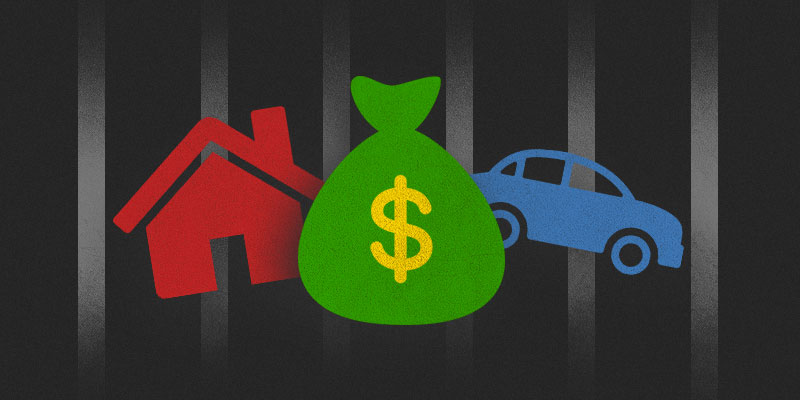The Alabama Senate moved one step closer to requiring police officers to get a criminal conviction before taking a citizen’s property, but states that have already implemented such limits have run into loophole: the federal government.
Alabama lawmakers passed their ban through a state Senate committee last week under the impression they had the authority to ban civil forfeiture in their state. New Hampshire passed a bill similar to Alabama’s in 2016, but state and local police are still managing to take property without a criminal conviction.
The federal equitable sharing program, which allows state and local police to partner with federal authorities when making forfeitures, effectively ignores state-level limitations.
“The government ought to be required to prove that criminal conviction before being able to seize stuff,” Republican state Sen. Arthur Orr told the Heartland Institute. “The idea that the government can take a citizen’s property without a criminal conviction does not sit well with most people that I discussed this issue with.”
In New Hampshire, state and local police forfeit property under the authority of the federal government, rather than the state. Despite the federal government technically being the one to take the property, the proceeds of the forfeiture cases remain with local authorities.
The federal stance on civil forfeiture is unlikely to change under President Donald Trump’s administration as Attorney General Jeff Sessions has long argued the practice is essential to combating the drug trade. Most often, officers will find large amounts of cash in cars traveling across state lines and seize it under the assumption that it was ill-gotten.
The program allows police to make the seizure without charging the owner with a crime. To avoid due process concerns, authorities instead charge the property with a crime, allowing them to assume its guilt in court and put the burden of proof on the owner to show that his property was not involved in criminal activity.
Police also argue they use the power responsibly, but law enforcement often directly benefit from the funds they forfeit. Federal authorities took more than $4 billion through forfeiture in 2015, and most states allow departments to keep the vast majority – if not all – of the proceeds from the forfeitures they make. In Alabama, police departments receive 100 percent of the funds they forfeit.
North Dakota and Massachusetts are tied for the worst states in the U.S. on civil forfeiture, according to a study from the Institute for Justice. Both received an “F” from the group on the issue, but the rest of the country isn’t much better: 21 states are tied at a “D-,” including Alabama.
(Content created by The Daily Caller News Foundation is available without charge to any eligible news publisher that can provide a large audience. For licensing opportunities of our original content, please contact [email protected].)











